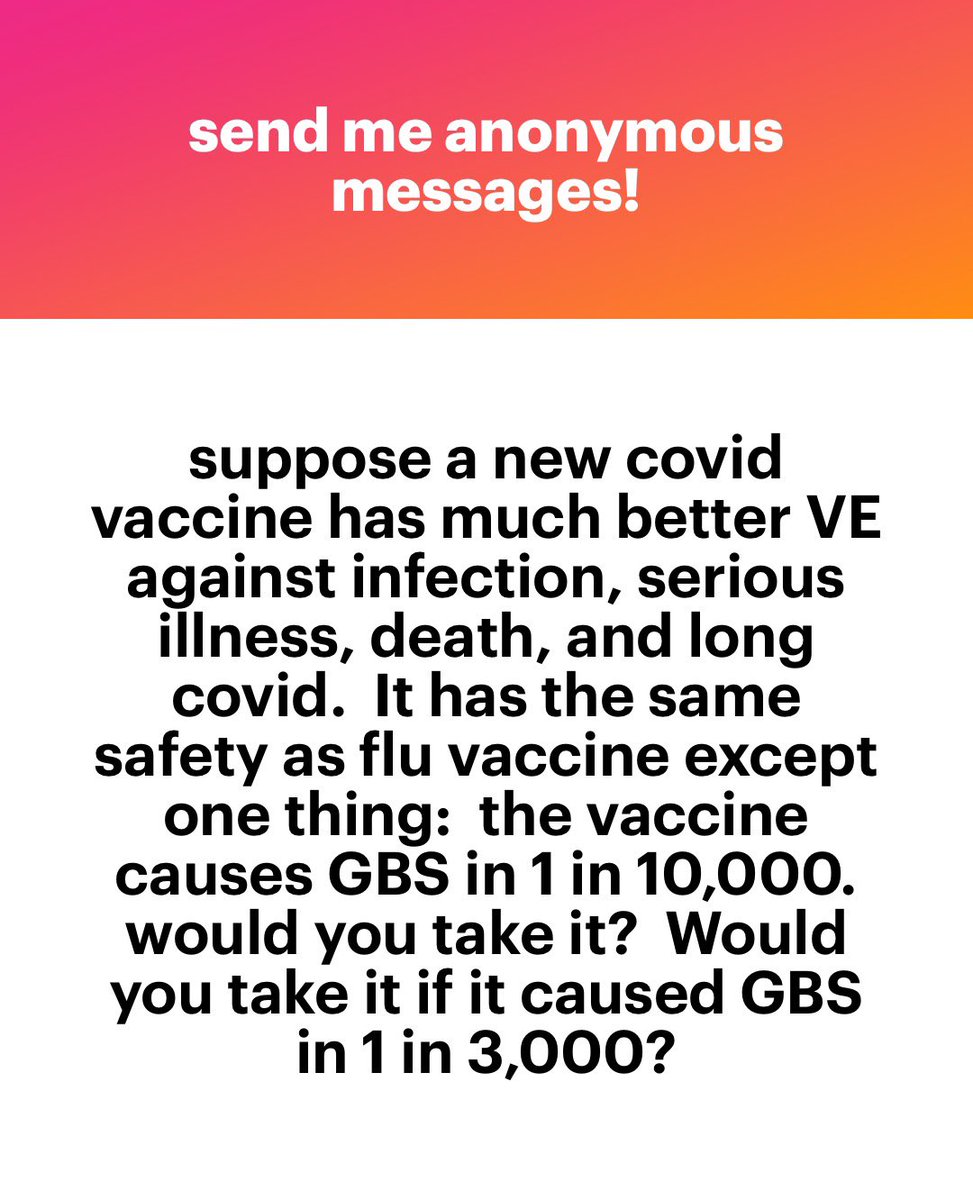Also you can tell me what else you’d like me to write about on my blog here:
ngl.link/deplatformdise…
Or you can ask me whatever you want too. That seems like a fun way to deal with insomnia
ngl.link/deplatformdise…
Or you can ask me whatever you want too. That seems like a fun way to deal with insomnia
Yes. They’re being actively worked on all the time. One thing that would really help though is an orally bioavailable form of remdesivir. Also molnupiravir should go away. 

Pondering the meaning of life for a few hours, then I’ll probably eat something when I accept that there are no good answers to the question bc blood sugar 

I mean at this point it’s probably very hard to improve upon VE for severe outcomes considered in a vacuum for any vaccine because they’re so good at it but this hypothetical vaccine likely wouldn’t be approved. I wouldn’t take it- that’s a ~10-30 fold increase in GBS risk. 

• • •
Missing some Tweet in this thread? You can try to
force a refresh












